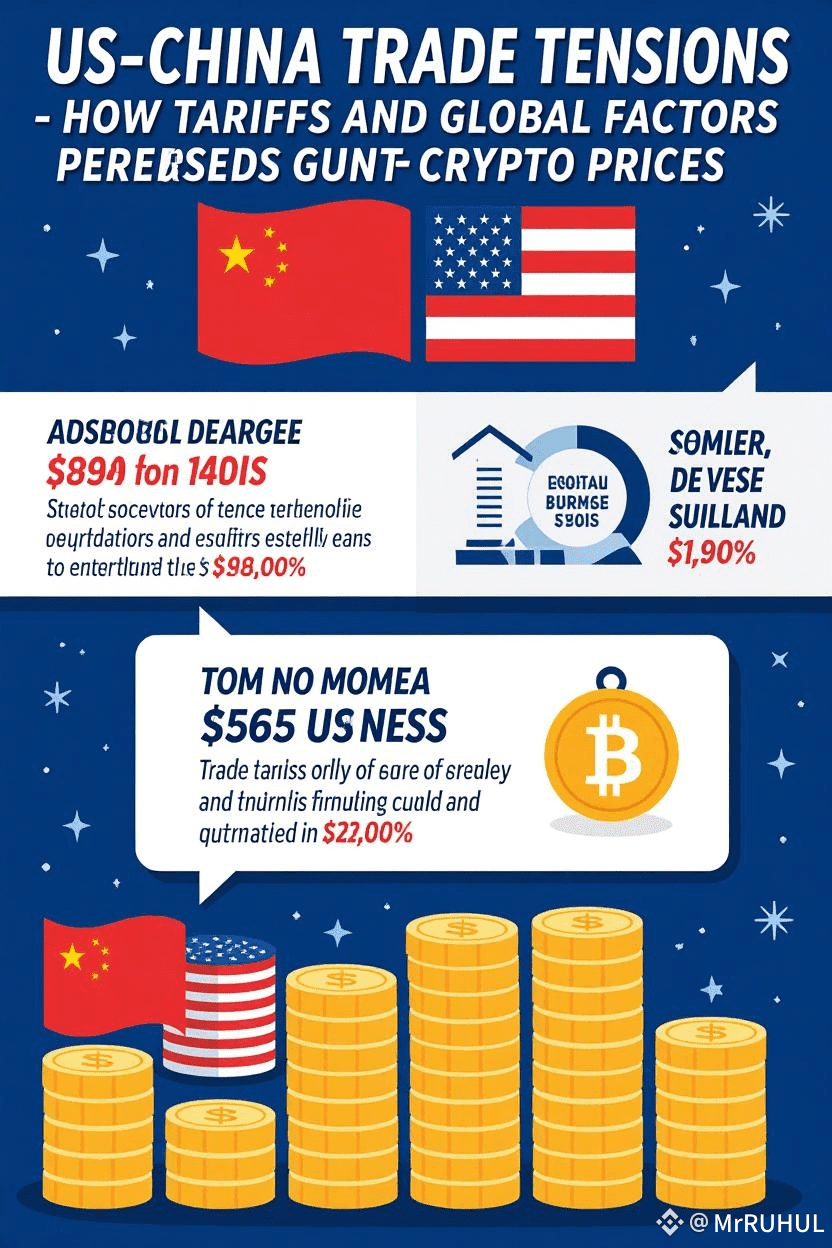The trade war between the US and China, which includes tariffs and political tensions, has made the economy much worse. Cryptocurrencies like Bitcoin are starting to act like a new kind of asset, even though they can be dangerous.

There isn't a direct correlation, but there are a few crucial ways that it happens. For instance, the market's attitude, changes in currencies, and the demand for new places to keep money. When there are trade wars, the economy of the world is less stable. If the two biggest economies in the world fight for a long time, it might damage the growth of GDP, the profits of firms, and supply chains all around the world. When things aren't clear, people often "fly to safety" by buying gold, US Treasuries, and the Japanese Yen. Some people in the market now believe that Bitcoin can assist them avoid this risk.
People like it because it's not run by one government; it's decentralized. This is a great choice for people who don't trust banks anymore. Because of this, the values of cryptocurrencies go up when trade discussions get more serious. This is because investors seek things that have nothing to do with business. Second, tariffs and the chance of a long-term slowdown in the economy affect what central banks do. To help the economy deal with the unfavorable impacts of trade wars, central banks, especially the US Federal Reserve, may be more willing to cut interest rates. This might mean lowering interest rates or commencing quantitative easing (QE) again. The laws make it easier for money to flow through the financial system, which means the country's currency is worth less. When the value of the US dollar falls down, the value of Bitcoin can go up. When the dollar is worth less, it's easier for people from other countries to buy products because prices are in US dollars. A loose monetary policy is more important since it makes fiat currencies less valued. This backs up Bitcoin's claim to be "digital gold," a rare asset that can't be changed by politics or inflation. The US and China also have an effect on the value of the Chinese yuan (CNY). In reaction to US tariffs that affect its economy, China has sometimes let the value of its yuan decrease to make its exports more competitive. Cryptocurrencies might be a method for Chinese consumers and businesses to move their money to another nation where it will be secure from the yuan's collapse in value and strict capital controls. This is a legitimate reason why people want to acquire bitcoin, and it shows how tensions throughout the world make people want to buy it. But this link isn't as simple as it seems. Cryptocurrencies are still very risky and there are a lot of things we don't know about them. When people fear and the stock market drops swiftly, like it did when COVID-19 initially hit in March 2020, correlations can stop operating. During a "dash for cash," investors can sell all of their riskier assets, like bitcoin, to make up for losses and margins in other areas. This illustrates that crypto can help you get out of some political difficulties that take a long time to fix. However, right now, it's not a good place to keep your money during big, systemic financial crises.
In short, the trade war between the US and China has a huge effect on the value of cryptocurrencies. It does this by making the economy less stable, which leads to dovish monetary policy that decreases the value of fiat currencies, and by causing capital flight, which makes some things more attractive. This shift makes it more likely that Bitcoin and other key cryptocurrencies will have a bigger impact on the global economy. They are no longer just something you can buy; they are becoming more complicated and dangerous tools for getting around in a world that is getting worse and less stable.#USChina #Write2Earn!

